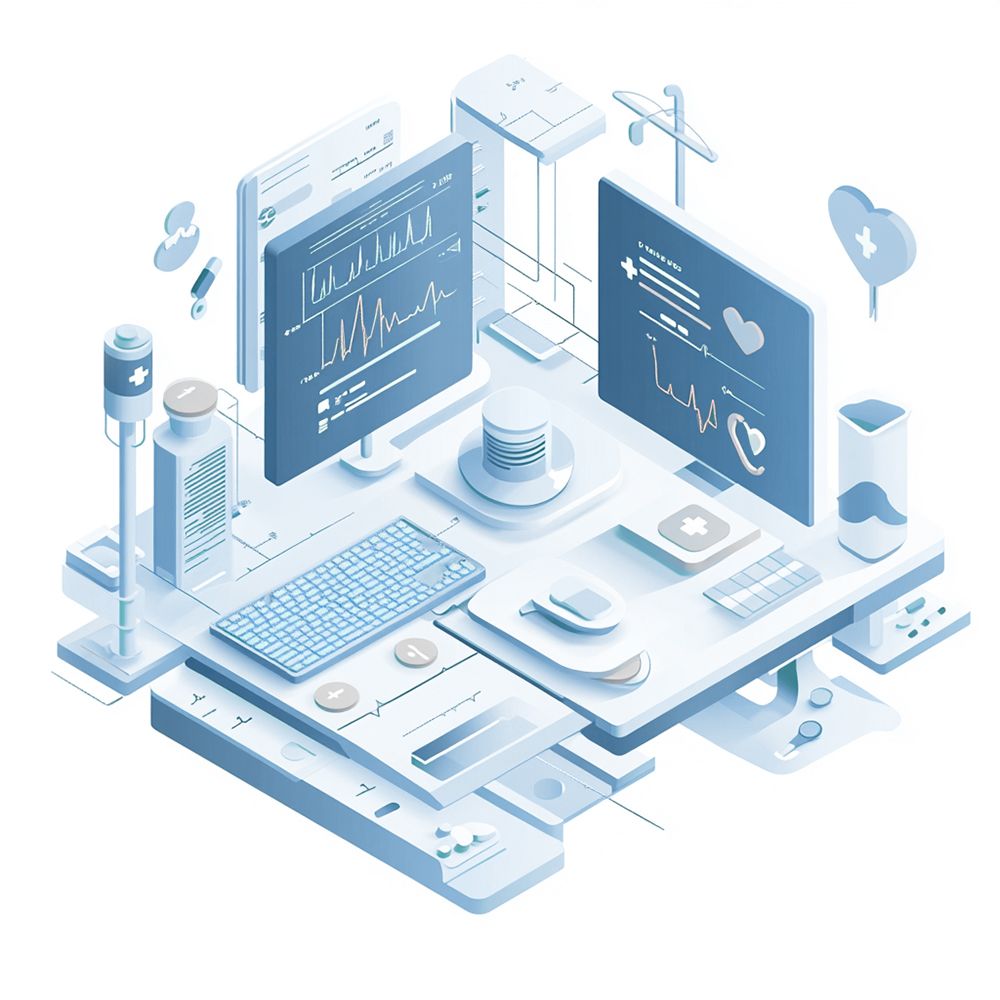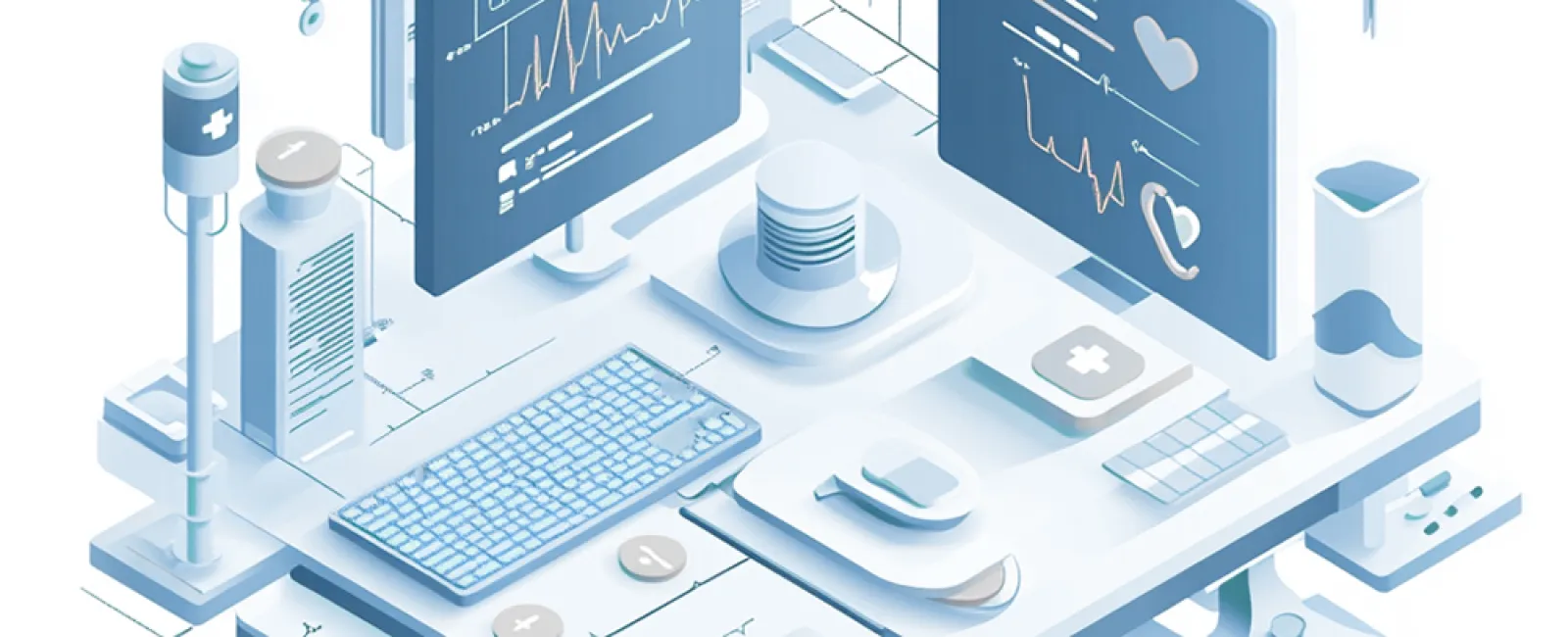Safeguard Patient Trust with Crucial Healthcare Data Privacy Tools
Health data privacy is a requirement wrapped in a moral. Why? Trust is the foundation of a patient and provider relationship. How? Patients share their most intimate details and expect the utmost care while handling their information. So what? This trust is increasingly at risk with each exposure of data. When? When the next unauthorized data breach occurs.
HCP offers a realistic way to address these challenges head-on. These essential tools and strategies will help you safeguard patient
trust and ensure compliance with data security regulations.
The Power of Data Privacy

Data privacy within HIPAA compliance means protecting all sensitive information about a patient's identity, health status, and medical records, known as Protected Health Information (PHI). Examples of this sensitive information include names, addresses, test results, diagnoses, and other unique identifiers. When this information is compromised, the consequences can devastate patients and healthcare providers.
The numbers are alarming,
and these statistics are sobering. In 2023 alone, there were 725 reports of
large-scale security breaches in healthcare in the U.S. I'll say that again,
but differently: That's more than two daily breaches! Any of these increasingly
frequent breaches have a profound impact, leading to financial losses, legal
repercussions, and, most importantly, a loss of patient trust. Compliance with
data security regulations is about avoiding fines because the organization
protects the foundation of the patient-provider relationship.
Empower Workforce Employees to Handle Patient Data
An effective compliance
program begins with a clear organization-wide framework for handling patient
information. Imagine a healthcare organization where every staff member, from
the receptionist to the chief surgeon, knows precisely how to manage sensitive
data. This consistency and transparency are crucial for ensuring everyone
understands their responsibilities and adheres to regulatory standards.
These organizational policies
and procedures should be easily accessible and written as a reminder of the obligation.
We can only instill a culture of vigilance through transparency and consistency,
where every employee understands their role in safeguarding patient trust.
Staff Training: The Backbone of Data Privacy
Empower the workforce to
evolve and grow. A common mistake is groups believing that "training is just
another checkbox" on another to-do list. Instead, staff training as a
requirement is the backbone of any data privacy strategy.
Regular, thorough
training sessions ensure that employees understand the importance of data
privacy regulations, what following data privacy laws means, and how to
implement best practices. Use plain language and real-world examples to make
the training engaging and easy to understand. For instance, explain how data
encryption works or why proper document disposal is crucial.
Refresher courses are
equally important. Regulations change, and new threats emerge. Keeping staff
updated with the latest information helps prevent avoidable data breaches and
reinforces the importance of data privacy.
Regular Risk Assessments: Staying Ahead of Threats
Consistent annual risk
assessments equal routine health check-ups for your data security systems.
These assessments help identify potential threats and vulnerabilities in your
physical assets, software, hardware, and cloud networks. By conducting these
assessments regularly, healthcare organizations can stay ahead of potential
threats and take proactive measures to mitigate risks.
Risk assessment reports
provide valuable insights into the necessary remedies and mitigation
approaches. Such reports inform decision-makers about key vulnerabilities, the steps to prevent
devastating breaches and ensure compliance with data security regulations.
Incident Response Plan: Be Prepared for the Event
Despite the best
precautions, data breaches can still occur. That's why having an incident
response plan is essential. This plan outlines the specific actions to take
immediately after a breach to minimize damage and rebuild trust.
Assemble a response team
that is comprised of members who possess specialized knowledge in critical
organizational functions such as IT, compliance, legal, and finance. This
recommendation is so your organization can respond, detect, and report
incidents, contain crises, notify relevant parties, and investigate the causes.
Concrete actions (such as isolating affected systems and communicating
transparently with patients) can significantly reduce the impact of a breach.

Secure Information Technologies: The Foundation of Data Privacy
Investing in healthy IT
systems is non-negotiable. Measures like access control and encryption are
essential for protecting sensitive information. Data security requires regular
system updates, which can be automated with the correct software.
Cutting costs by
skimping on IT systems would represent a false gain. The longer-term investment
benefits of secure IT systems far outweigh the risks of data breaches. By
prioritizing data privacy, healthcare organizations can protect patient
information and maintain compliance with data security regulations.
Data Privacy Compliance Tools: The Role of Software
Compliance software automates
as much as possible for data privacy requirements. That means essential
functions that keep organizations and their employees compliant with evolving
data security regulations.
Take full advantage of
the latest compliance software for data privacy. The best software packages
will offer features like:
- Staying updated on regulation changes
- Providing access to training modules
- Recording training completion scores
- Sending reminders for training refreshers
- Creating and distributing audit and risk assessment reports
- Monitoring incident reports
- Storing and sharing essential documents
Compliance software helps healthcare organizations maintain effective data privacy standards by automating administrative tasks and meeting all compliance requirements.
On a personal level, an individual could spend hours accomplishing the same tasks above. Can you get your time back? Compliance software automation aims to give you a high-level view of your organization and fast.
Safeguarding Trust Effective Data Privacy
Protecting patient data requires a comprehensive approach with clear guidelines, regular training, thorough risk assessments, a robust incident response plan, secure IT systems, and effective compliance software. By prioritizing these tools and strategies, healthcare organizations can safeguard patient information and maintain compliance with data security regulations.
Remember, data privacy isn't just about avoiding fines or legal issues—it's about building trust with your patients and ensuring their information is safe. So, take these steps seriously and prioritize data privacy in your organization. Your patients will thank you, and peace of mind will be the outcome.

